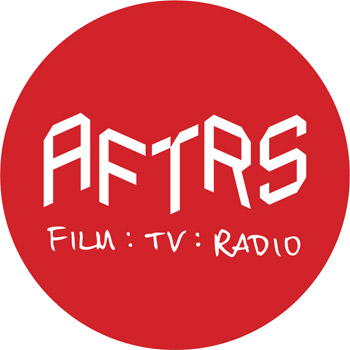Women In Film: Why Gender Equality Still Matters

Women In Film: Why Gender Equality Still Matters
There's rebellion on the red carpet at Cannes and in Hollywood, rebellion from the podium at the Oscars®, and rebellion in the speeches at The Logies. Who would have guessed back in the 1970s, in the heady days of feminism, that in 2015 a resurgence of activism was arising from the same issue of gender inequality?
But the reality for women working in Australian film and television, revealed in the WOMEN IN FILM issue of the AFTRS publication, LUMINA, launched today, explains why gender equality still matters.
LUMINA: WOMEN IN FILM looks at the data and the experiences of Australian women in the screen sector. More than 40 prominent Australian women screenwriters, producers, directors, journalists, academics and reviewers have contributed to this compelling collection of essays, articles, analysis and personal reflections, which includes a keynote paper from Monica Davidson, Knocking on a Locked Door: Women in Australian Feature Films.
Ms Davidson's paper reveals that of all Australian feature films made since the 1970s, a staggering 85% have been directed by men. The figure has not changed substantially in 25 years. As LUMINA reports, the fact remains that, overwhelmingly, the decision makers and those in creative control in the Australian screen industry are still most often men.
In 2015, only 16% of feature film were directed by women.
In 2015, only 20% of feature films were written by women.
In 2015, only 29% of feature films were produced by women.
AFTRS CEO and LUMINA editor Sandra Levy says: 'The figures have remained virtually static over decades in spite of the fact that women make up about half of the graduates from film schools, and about half of the workers in the screen industry.
'Australia is not alone. In the USA, women directors accounted for only six per cent of the 250 top features, in the UK, only 14 per cent. And this situation hasn't changed much over the last 40 or more years. In 1971, four per cent of directors were women and 10 per cent producers. At this glacial speed it will be over 100 years before we can expect that half of the films being made will be directed by women.
'This issue of LUMINA explores this gender gap in the film and television industry, and looks at the role of women both behind and in front of the camera. It's written by women about women at the exact moment in time when more and more women are considering the status quo.
'My hope is that this collection of writing contributes to the conversation, and challenges anyone who reads it to not acknowledge that our industry has an important role to play in all facets of gender equality."
Contributors to LUMINA: WOMEN IN FILM include screenwriters Laura Jones and Deb Cox, producers Jan Chapman and Andrena Finlay, directors Rachel Ward, Catriona McKenzie and Sabina Vasefi, journalists Sandy George and Michaela Boland, reviewers Sandra Hall, Sarah Ward and Julie Rigg and television executives Denise Eriksen and Maz Farrelly.
Essential reading for anyone seeking a deeper understanding of the Australian screen industry, LUMINA is dedicated to encouraging challenging discourse on the issues most significant to the Australian Screen arts and broadcast sector.
Hard copy paperback issues of LUMINA are available to purchase for $10 AU from the AFTRS online store: http://bit.ly/1vHV85e. A free e-book version of LUMINA can be downloaded from the iTunes store (available soon) http://apple.co/1Es5FiW Every LUMINA article published to date is available via the AFTRS website as an individual viewable 'flip book'. Issue 14 chapters will be online soon in the LUMINA section: aftrs.edu.au/lumina/lumina-articles
As the national screen arts and broadcast school, the Australian Film Television and Radio School is the only institution of its kind in the country - with professional, industry standard, film, television, radio and production facilities all under one roof. It is dedicated to nurturing and preparing the next generation of Australian screen storytellers, broadcasters and digital practitioners, and delivers courses across the nation including part-time Diplomas and Advanced Diplomas in the specialist craft areas, the full-time BA (Screen) degree and Masters Programs. AFTRS also delivers short courses nationally through its short course division, AFTRS OPEN. AFTRS is federally funded by the Australian Government.
MORE



